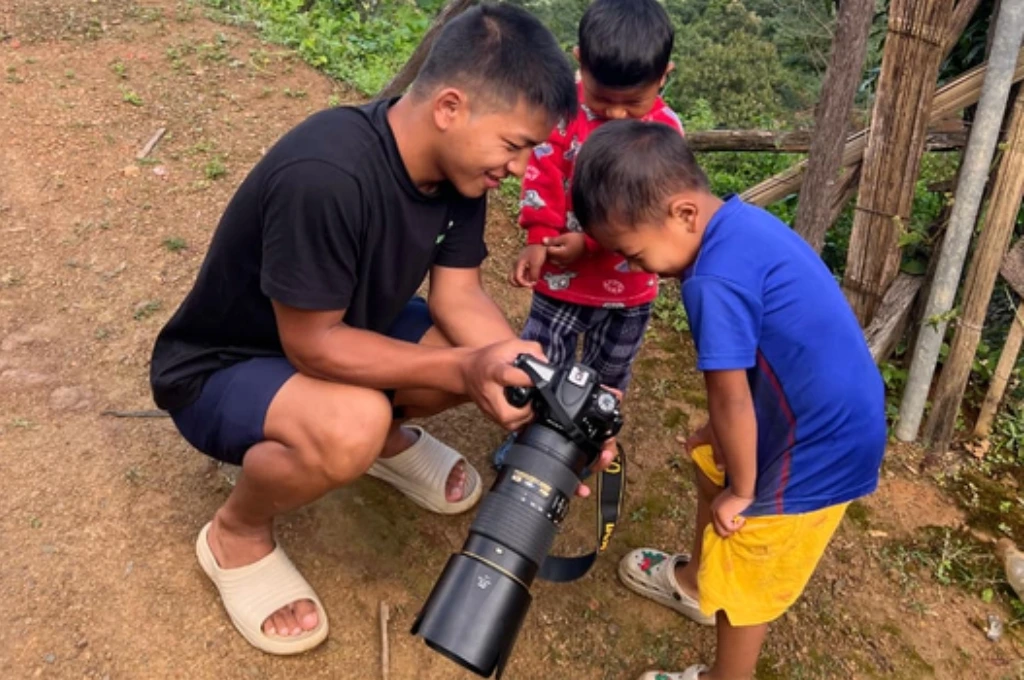In rural Mizoram, I struggle to stop my community from hunting

Our village, Murlen, in Mizoram’s Champhai district is synonymous with the Murlen National Park, which is blessed with rich biodiversity. This extends to our small village where a variety of flora and fauna including bamboos, orchids, snakes, bees, and birds can be found. However, the explotation of land and forest by our people is threatening this environment.
I understood this better when I joined the Green Hub Fellowship in 2023, and learned about environment and wildlife conservation through film-making. The following year, I started working on a biodiversity documentation project where I would document the animal and plant species through videos and use those to educate the children about environmental protection. This project was important to me because there’s no coherent study on Murlen till date and there is a lot to discover within its dense forests.
But things didn’t work out as planned. The work started in July and ran until December; that year, it rained heavily in Murlen until the end of October. I could only step out in November, which meant I had just two months to shoot.
Furthermore, the community and I were often at odds as I worked on awareness campaigns. For many people in our village, wild animals and snakes only represent danger, so they prefer to kill them. Some people also hunt and sell them in the markets to make money. Hunting has been a traditional practice in my community, and it won’t get discontinued just because some young people and me are telling them to stop. While I try to educate children about the harmful impacts of hunting, it becomes difficult to do when their parents are against such teachings. The children go back home and see hunting being normalised in their everyday lives.
Hunting also makes it difficult for people like me to earn a living from my second job as a birding guide, because the sound of rifles scares the tourists away.
I will continue my nature walks with the children, and I am trying to bring in environmental experts to speak with the elders too. I hope these experts will be able to change the perspective of my people.
Pauzatuala is a biodiversity conservationist based in Champhai, Mizoram.
As told to Malsawmdawngliani Tara, IDR Northeast Fellow 2025–26.
–
Know more: Learn how young Jamatias in Tripura risk family ties to fight drug addiction.
Do more: Connect with the author at zomizts@gmail.com to learn more about and support his work.



